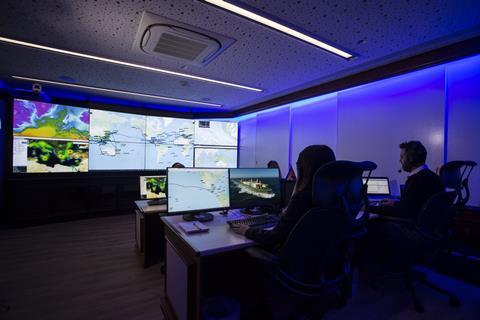AAL Shipping is enhancing its safety and operational standards across its fleet, achieving the latest 2020 IMO Intact Stability Code.

Nicola Pacifico, head of transport engineering at AAL, explained: “The 2020 IMO Intact Stability Code is currently only mandatory for new vessels. Nevertheless, we decided to harmonise these new standards across our fleet and operations.
“In the past, carriers were free to set their own standards governing stability when lifting heavy cargoes and shippers either accepted them or not. Now the bar is pre-set, and carriers will need to prove in advance that the stability of their ships and heavy lift operations is guaranteed. This is a major step forward for setting higher safety standards within the sector and demonstrates the capabilities of one carrier compared to another.”
AAL is also taking proactive steps to improve its sailing efficiency, fuel consumption and emissions reductions with its performance optimisation control room (POCR) – developed and operated by Columbia Shipmanagement (CSM). The facility is harnessing routing, weather and sea conditions technology to monitor and plan every aspect of each sailing. Voyage recommendations are then returned periodically to each master with optimised routing, sailing, and fuel consumption recommendations.
AAL’s operations manager, Valentin Gherciu, added: “The next step on our journey to enhanced sailings efficiency and lowered CO2 emissions is the implementation of a new ‘motion response analysis’ (MRA) programme.
“The output of this programme coupled with machine learning tools afforded to us by the POCR, will enable AAL to make even more efficient voyage calculations in terms of fuel consumption and how to reduce the same. Our commitment to this cause was also the driver for AAL’s recent adoption of next generation hull coatings to our fleet that will reduce resistance through water and thus lower the engine power and fuel consumption required.
“In combination with strict hull condition monitoring and maintenance, not only can sailing costs be achieved, but also a reduction to the fleet’s all-important CO2 footprint.”
















